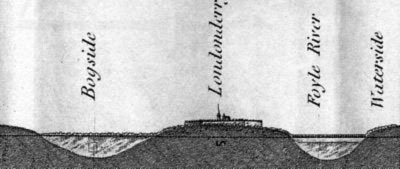This is the most beautiful song I've ever heard. It was recorded by the group Sequentia — Barbara Thornton (voice), Benjamin Bagby (harp) — in 1984. The composer, Adam de la Halle, or Adam le Bossu (Adam "the hunchback") lived from 1285 and 1288. Much of the notation of his music is lost or unclear, and requires active (re)interpretation.
If the pain of love
Were not so pleasant,
One could never suffer through it
For very long without taking the road
To despair, or worse.
But it is such pleasing pain,
And Love is so gentle,
And is the source of such noble thoughts,
That, in truth, it can be Paradise
For those who love truly.
The hope of the joy
Of seeing her,
And Love's amaible manners
Encourage every suitor to hope
That he will gain favor,
Provided he will be happy
And eager to serve,
Only hoping for the best,
For no one is suitably enamoured
Who has not this resolve.
I would not for anything in the world
Want to believe that a true lover
Could ever be inconsistent,
Or that he could shrink from sufferings;
Provided his heart and desires
Are ever inclined towards that smiling face,
Those sweet, loving eyes,
And the noble bearing,
And all the goodness, honor and worthiness
Which have made him a prisoner.
For this is what soothes and restores
Those who are most patient in love;
And this is what compels them to sing,
In the hopes that Humility will intercede in their favor.
No advantage is accorded to the bold
Who love only as they see fit,
But steadfast lovers always prosper,
Heedful of their tasks:
Mercy favors them.
My lady, if I thought that I would live
For one hundred thousand years.
And even if you were no longer living,
I could never think of another;
You have so utterly enchanted me
That there will never arise in me anything but joy
At that place where my pure and devothed thoughts
Are fixed. This is my suffering,
And I shall die possessed by it,
I am certain.
O sweet month of May or April,
I am barred from entering that sweet place.
See that my song gets sung
There, and is attended.








